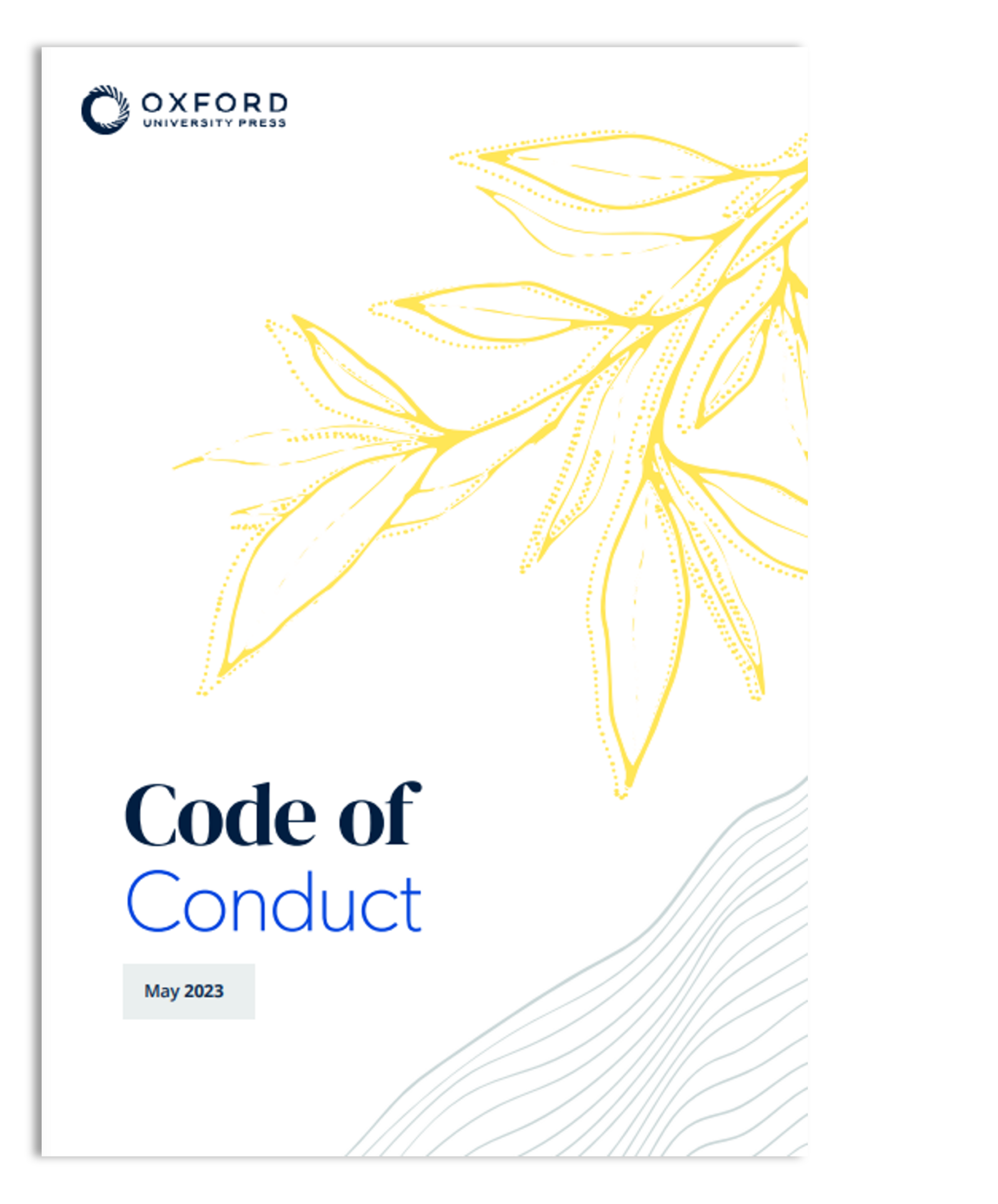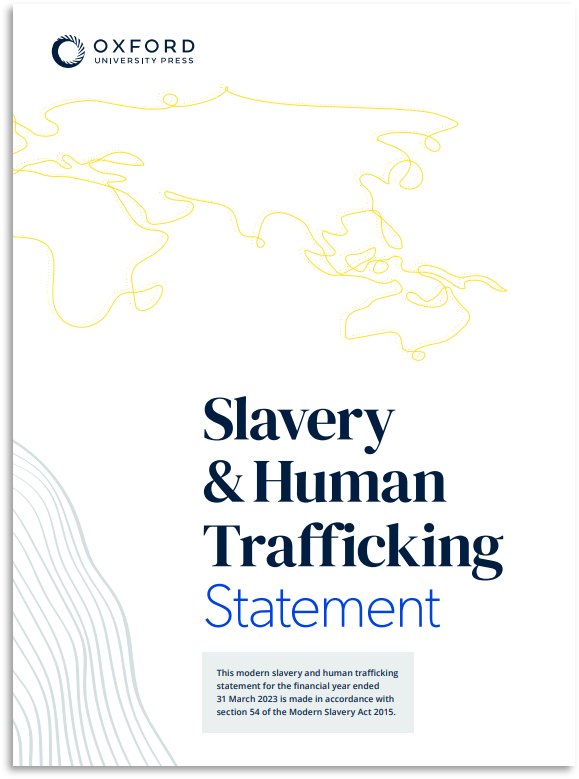Code of Conduct
Our Code of Conduct presents the set of values and principles that underpin all of our work at Oxford University Press. It also outlines our commitments across a range of important ethical and social concerns. We have two versions of our Code; one for our employees and one for our partners.

Information Security Statement
At Oxford University Press, we are committed to safeguarding the confidentiality, integrity, and availability of all physical and electronic information assets throughout our organization. We recognize that the protection of information is essential to maintaining the trust of our customers, partners, and employees.
We are proud to be ISO 27001 certified, demonstrating our commitment to maintaining a robust Information Security Management System (ISMS). Our ISMS encompasses all processes, systems, and services involved in the design, development, maintenance, and delivery of our products and services.
Our Commitment to Security
- Risk Management: We continuously identify, assess, and mitigate risks to our information assets to ensure their protection
- Access Control: We enforce strict access controls to ensure that only authorized personnel have access to sensitive information
- Incident Management: We have established procedures to detect, report, and respond to security incidents promptly
- Continuous Improvement: We regularly review and improve our security policies, procedures, and controls to adapt to evolving threats and business needs.
Contact Us
For more information about our information security practices, please contact [email protected].
Our commitment to accessibility
At Oxford University Press, we always seek to make our products accessible to, and inclusive of all our users, including those with visual, hearing, cognitive, or motor impairments.
To support these goals, we follow the general principles of web usability and universal design and, where feasible, endeavour to make our platforms and services accessible to all, regardless of an individual’s impairment or the device used.
We target adherence to level AA of the World Wide Web Consortium (W3C) Web Content Accessibility Guidelines 2.1 (WCAG 2.1) in order to help our users take full advantage of the accessibility features provided by their chosen device, web browser or operating system, or assistive technology.
Specific products and platforms have their own accessibility statements which describe their level of accessibility.
We publish books in a range of different electronic formats including PDF, EPUB3, and HTML across our platforms.
We follow the general principles of eBook accessibility to ensure eBooks can be used with technologies that support accessibility. This includes considering layout, reading order, and the use of alternative text.
Accessibility levels across eBooks vary depending on the age and format of the product.
Our EPUBs specifically contain accessibility features that support:
- Flexible layout: this allows text and images to “flow” to fit the screen size, making it easy to read on any device without needing to zoom or scroll excessively.
- Personalized reading experiences: readers can customize their experience by adjusting text size and font. Highlighting, bookmarking, and note-taking functionality is available in most eReading platforms.
- Read aloud functionality: this is useful to those who prefer listening to text.
Making these features available across our older eBooks is an ongoing project. If you need support with the accessibility of a particular eBook, please contact us.
Please contact [email protected] if you have any feedback on accessibility that you would like to share with us.
Reports
Read about the achievements from across our global organization, and learn about the progress we have made towards our goals to operate sustainably, responsibly, and to support our communities, in our reports.



